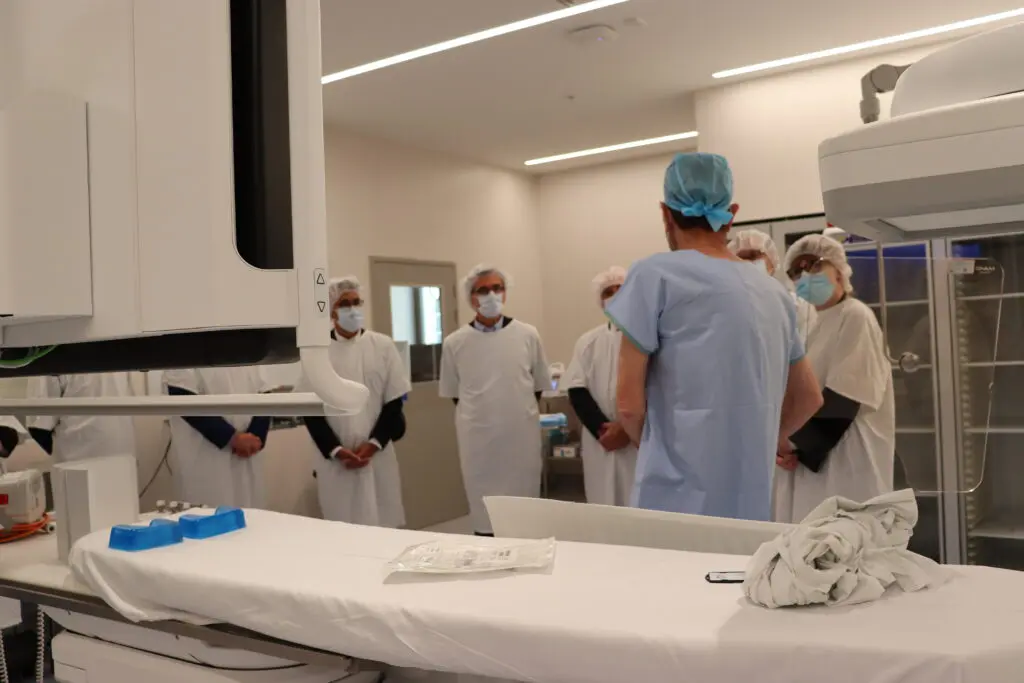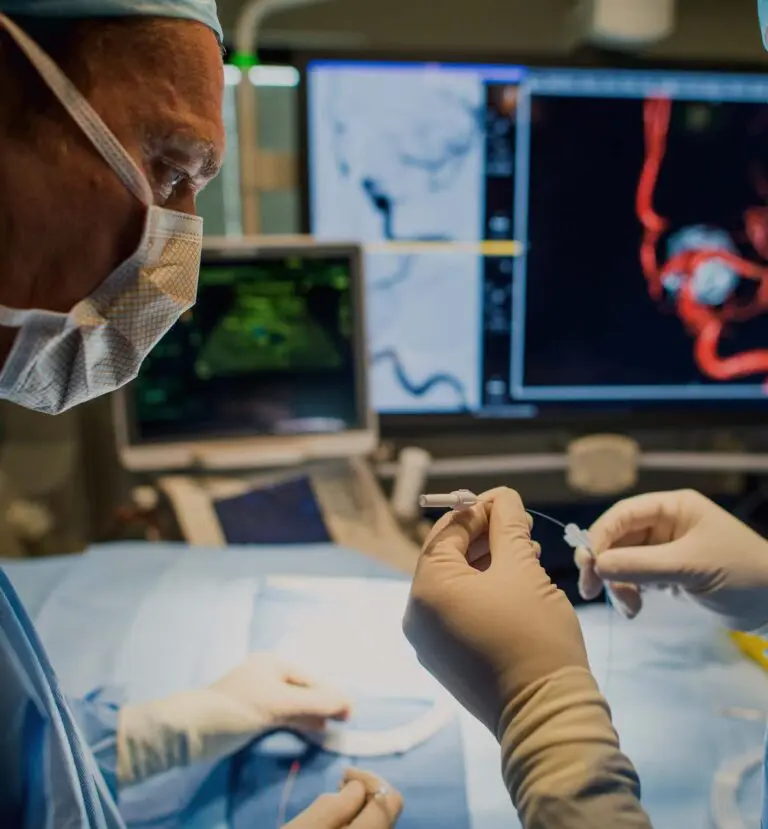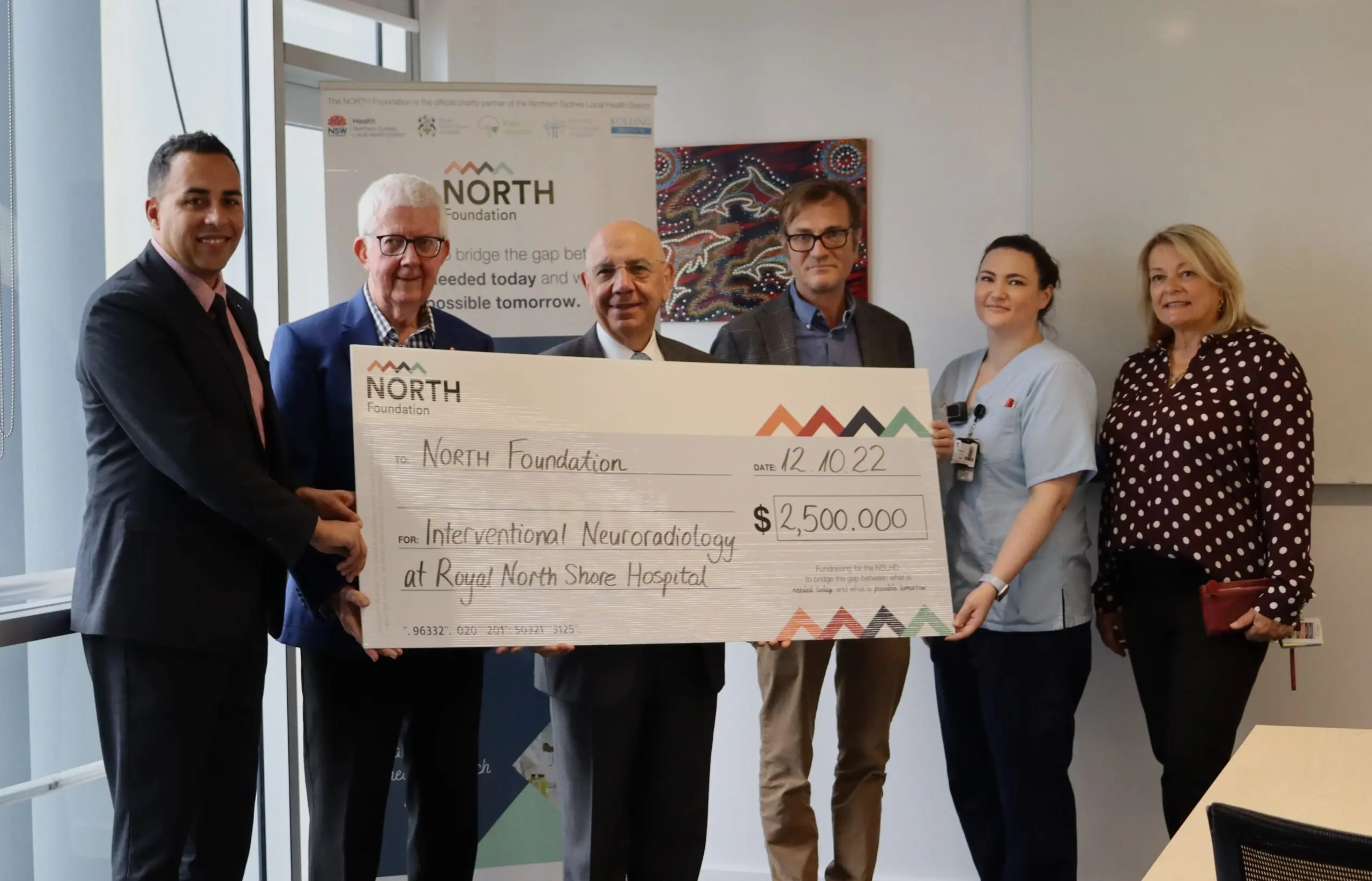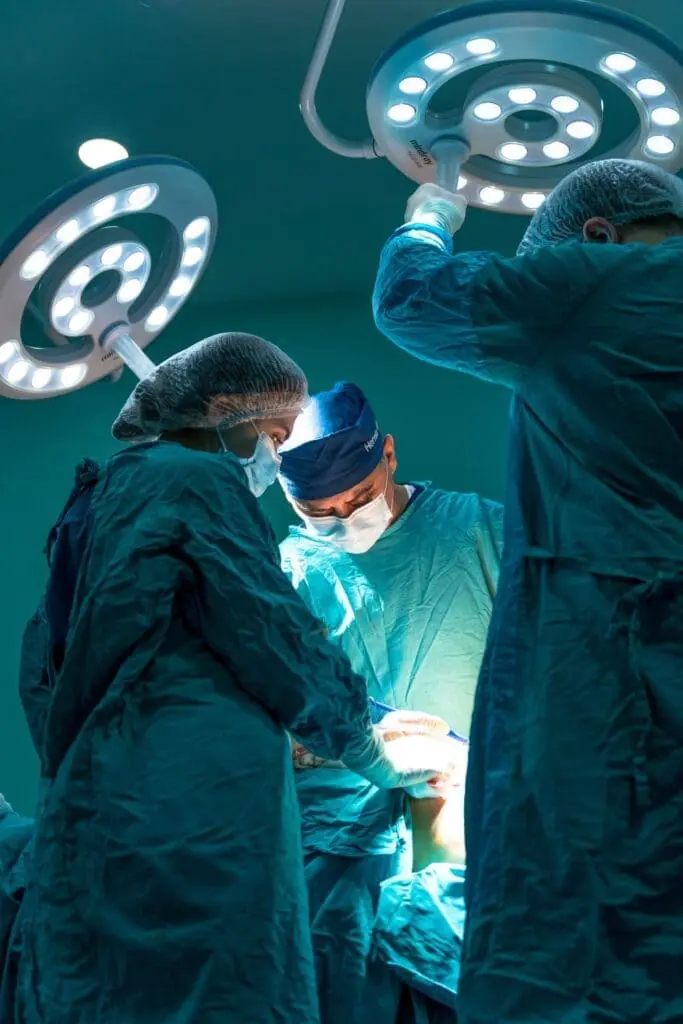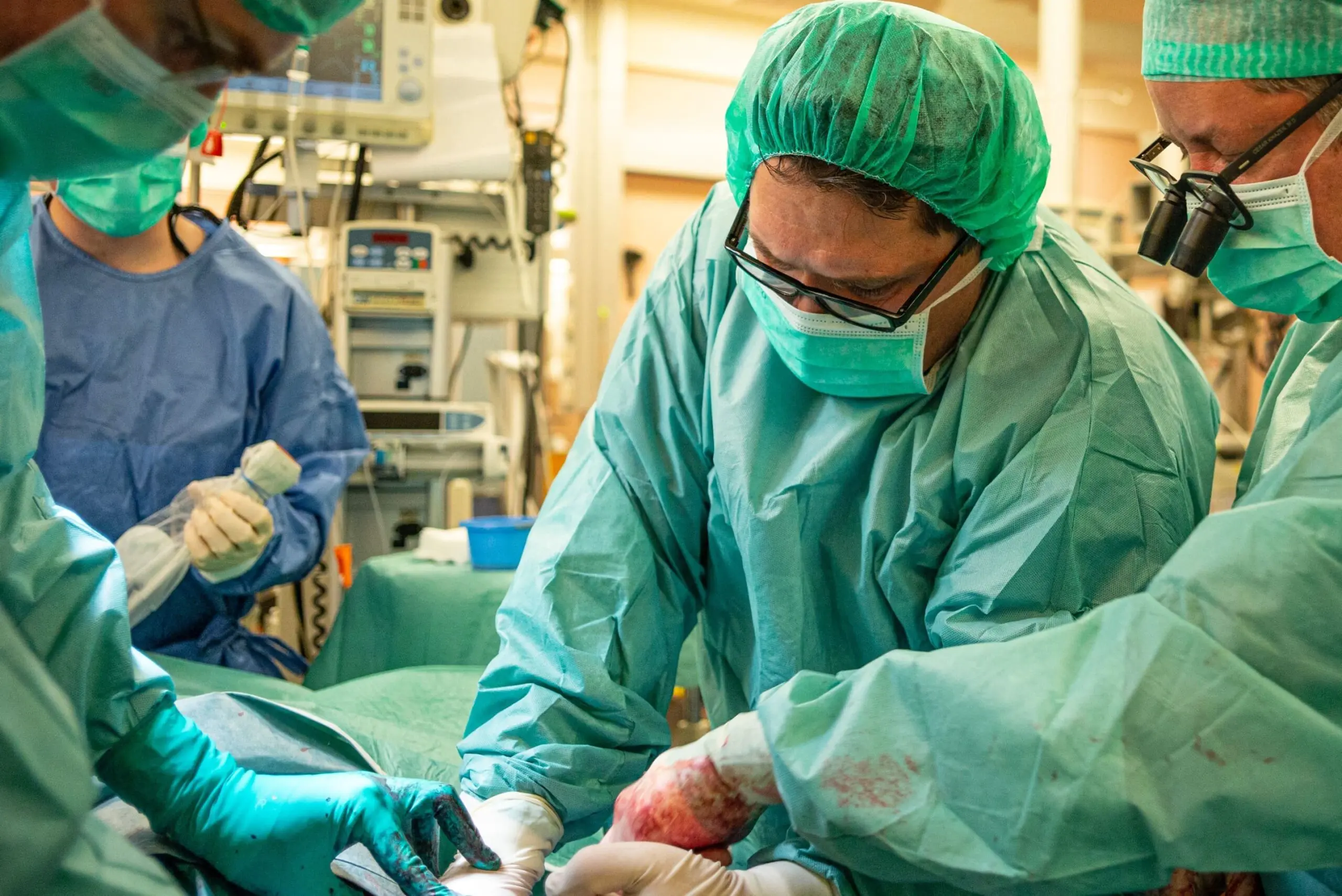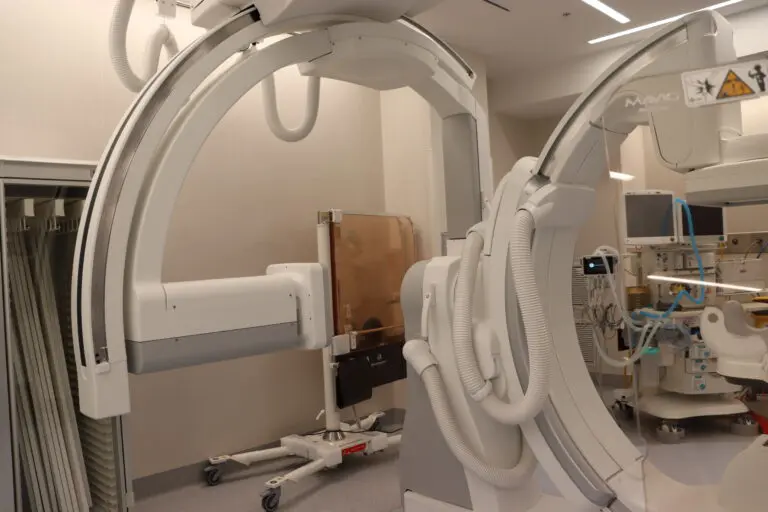
What is interventional neuroradiology?
INR was developed by combining expertise from three different medical disciplines and allows consultants to target vascular diseases localised in the brain, neck, head and spine.
INR represents an extraordinary medical breakthrough as it utilises a high-resolution video feed to guide consultants to where treatment is urgently needed.
Stroke patients have much better outcomes with INR as:
- Intrusive surgery can be avoided in most cases
- The risk of treatment complications is significantly reduced
- Recovery times are shortened dramatically
- The financial cost of recovery is lowered

